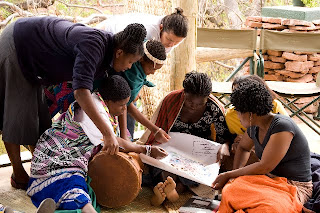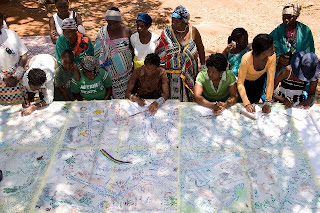- the importance of self-development, which implies the recognition and respect of indigenous people's own social, economic and cultural development and of their own cultural identities, including their right to object to projects in their traditional areas;
- the consequent need to ensure the effective participation of indigenous peoples at all stages of the project cycle and to permit their free prior and informed consent;
- the recognition of the key role played by indigenous peoples notably in the conservation and sustainable use of natural resources; and
- acknowledgement that cooperation with indigenous peoples is considered essential for the objectives of poverty elimination and sustainable development of natural resources, the observance of human rights and the development of democracy.
The principles of the European Union's engagement towards indigenous peoples are applied in the context of the United Nations Declaration on the Rights of the Indigenous Peoples of 2007, which advances the rights of indigenous peoples around the world. Indigenous issues are consistently mainstreamed in European Commission's development cooperation strategies. In addition, the Commission gives direct support to civil society organisations working on indigenous issues, through various thematic instruments, in particular through the European Instrument for Democracy and Human Rights (EIDHR).
Related news
- 18/11/2010 - Statement by the Spokesperson of EU High Representative Catherine Ashton, on Canada joining the UN Declaration on the Rights of Indigenous peoples
- 09/08/2010 - Declaration by High Representative Catherine Ashton on behalf of the European Union on the International Day of the World's Indigenous People
- 23/04/2010 - Statement by the spokesperson of HR Ashton on New Zealand joining the UN Declaration on the Rights of Indigenous People
Source: EU Policy on Indigenous Peoples


